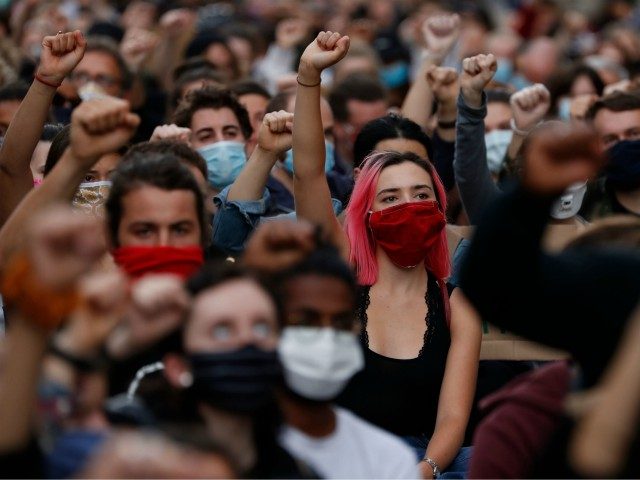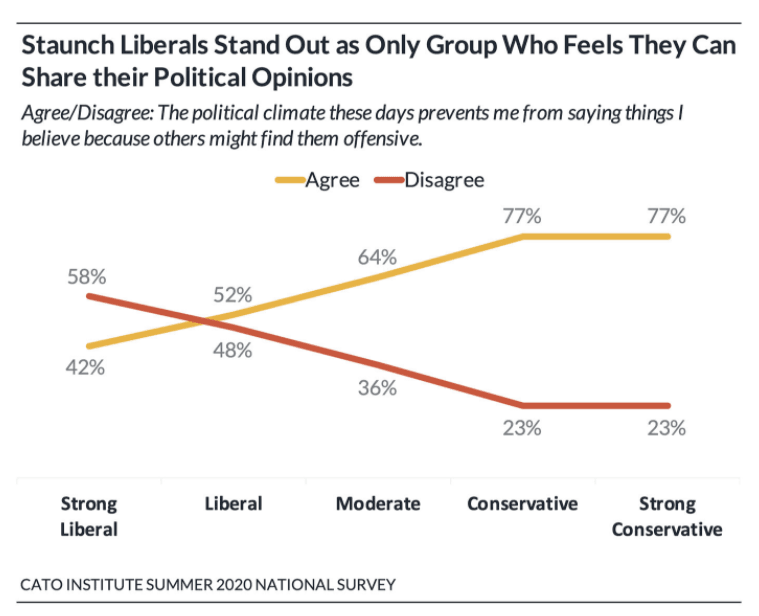“Cancel culture is a very grave threat to American freedom,” White House aide Stephen Miller told the Larry O’Connor radio show shortly after a Cato Institute survey showed that most Americans are silencing themselves amid online hostility.
“The share of moderates who self‐censor increased 7 points from 57% to 64%, and the share of conservatives rose 70% to 77%, also a 7‐point increase,” according to Cato’s July survey. “Strong conservatives are the only group with little change. They are about as likely now (77%) to say they hold back their views as in 2017 (76%).”
This “cancel culture” is intended to silence ordinary Americans, Miller told O’Connor July 24:
It is an effort at making people so afraid to speak their minds that a minority of radicals can effectively intimidate a majority of common-sense Americans, and that’s often how totalitarianism functions. If you can scare people at saying things they know to be true, and then you can even deprive them of the language to express themselves — not illegal aliens, but undocumented Americans, right? Not rioters and anarchists peaceful protesters …
When you take away people’s language, and then you punish them severely and excoriate them for saying things that we all know to be true, it’s possible for a minority of people to effectively bully the majority into acquiescence. That must be fought against above virtually any other objective we have right now.
“The silent majority of Americans [must] refuse to be silent,” Miller said.
Miller spoke the day before pro-migration advocates picketed the Virginia home of Chad Wolf, the acting secretary of the Department of Homeland Defense.
The Cato survey does not explain why people feel threatened, said Emily Ekins, director of polling at the Cato Institute. “We don’t know because they are afraid to tell us,” she told Breitbart News.
Black-white racial differences do not explain the trend, she said, partly because the survey shows increased concerns among Latino and black Americans, she said.
Cato’s report noted:
Self‐censorship is widespread across demographic groups as well. Nearly two‐thirds of Latino Americans (65%) and White Americans (64%) and nearly half of African Americans (49%) have political views they are afraid to share. Majorities of men (65%) and women (59%), people with incomes over $100,000 (60%) and people with incomes less than $20,000 (58%), people under 35 (55%) and over 65 (66%), religious (71%) and non‐religious (56%) all agree that the political climate prevents them from expressing their true beliefs.
A July survey showed that cancel culture has its strongest support among liberal postgraduate men. It is most strongly supported by people who are worried about the economy, health care, or retirement, rather than about issues such as feminism, diversity, or the environment.
But Americans may be able to overcome the concerns if they recognize how many other people share their opinions, Ekins said.
“People need to discover that other people feel like they do … If more people felt like, ‘Hey, I’m not the only one who feels that way,’ and they discover that other people feel this fear, then they might express their point of view.”


COMMENTS
Please let us know if you're having issues with commenting.